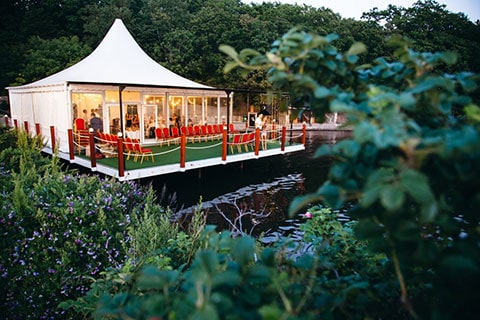
Oct 12
Civil Ceremony in UK Scotland Northern Ireland and Legal Preliminaries
Civil Ceremony in UK Scotland Northern Ireland and Legal Preliminaries
The options available will enable you to have the type of ceremony you wish at the location of your choice. You can either have a simple ceremony with just two witnesses or a ceremony where the bride is given away and bridesmaids/pageboys attend. You may have music and readings, but any with slight religious overtones need to be agreed with the Registrar before the day of Marriage. It is unlikely that you will be allowed to have live music, although you will be allowed to have approved recorded music to be played on either your own (or hired) System or the register office’s System.
The choice of venue is also yours. You can get married at any register office in England or Wales or in approved premises, which are licensed by local authorities.
You will appreciate the benefit of this flexibility:
• if your local register office is not able to accommodate the number of guests you wish to invite
• if you have moved away from an area, but would like to return there to get married
• if you desire a more unusual and memorable venue.
However, the wedding still has to take place indoors, between 8 a.m. and 6 p.m., with two adult witnesses present. These may be relatives, friends or colleagues who must be able to speak and understand English. Refer to the General Register Office website (gro*gov*uk) for further information.
Scotland
Regulations on marriage are much less restrictive than in England and Wales. Couples are able to get married anywhere they like, even out-of-doors or at home, subject to approval by the local council. The legal age is 16 or over and the permission of parents or guardian is not required. Both parties must inform the Registrar of their intention to marry and submit their completed marriage notice forms, relevant documents, declarations and fees to the Registrar of Marriages in the District where the marriage is to take place. There are no residency requirements and notice must be given in the three- month period prior to the date of the marriage and should be with the Registrar four weeks before the marriage. If either party has been married before, the notices should be with the Registrar six weeks before. The minimum period is fifteen days before the date of the proposed marriage.
Although both parties need not attend personal ly at the Registrar’s Office to hand in their marriage notice, at least one of the couple must attend there personal ly before the date of the marriage to finalize the arrangements.
While nothing of a religious nature may be included in the ceremony, it is possible to have music, poetry, exchange of rings, etc. and this should be discussed with the Registrar, as should any flower arrangements. Refer to the General Register Office for Scotland website fgro-scotland*gov*uk) for further information.
Northern Ireland
The legal age is 16 or over and persons over 16 and under 18 require the consent of parents or guardian. There are no residency requirements and notice must be given in the 12- month period prior to the date of the marriage and should be with the Registrar eight weeks before the marriage. If either party has been married before, the notices should be with the Registrar ten weeks before. The minimum period is 14 days before the date of the proposed marriage.
Both parties must inform the Registrar of their intention to marry and submit their completed marriage notice forms, relevant documents, declarations and fees to the Registrar of Marriages in the District where the marriage is to take place. The notice forms may be submitted in person or by post to the Registrar. The parties may be requested to attend at the Registrar’s Office to finalize the arrangements, and/or collect the marriage schedule.
Whilst nothing of a religious nature may be included in the ceremony, it is possible to have music, poetry, exchange of rings, etc. and this should be discussed with the Registrar, as should any flower arrangements. Refer to the General Register Office (Northern Ireland) website (groni*gov*uk) for further information.
Legal Preliminaries
It is a legal requirement for both to give notice of intention to marry. You cannot give more than one year’s notice of your intention to marry. The notice is a legal document that must be given and signed by each of the people getting married.
Marriage by Certificate
• You must both have lived in any district in England and Wales for at least seven days immediately before giving notice of intention to marry. It does not matter if either of you moves to a different address after the notice has been given.
• If you live in a different district from the person you are marrying, you can choose to marry in the register office in the district where either of you live or in any register office of your choice. Notice must be given to the Superintendent Registrar in each district.
• If you both live in the same district, notice must be given by both of you.
• However, it is important to first contact the district where you wish the marriage to take place.
• Once you have given notice you must wait 15 clear days before the marriage can take place.
 You can collect your certificate for the marriage in the district (or districts) in which the notice was given as soon as this waiting period is over.
You can collect your certificate for the marriage in the district (or districts) in which the notice was given as soon as this waiting period is over.
The certificate is the legal document that allows your marriage to take place.
• The certificate should be presented to the Registrar of the district where the marriage is to take place.
• The marriage may then take place at any time within 12 months from the day on which you gave notice.
Designated Office System
This relates to a marriage involving someone who is subject to immigration control. Initial ly a letter must be obtained from the Home Office stating they can marry in the UK. They then need to give formal notice to a Designated Office. The details of such notices will change if one or both of the parties to a marriage are subject to immigration control and also the location of the persons and their Designated Office. The Home Office or the Superintendent Registrar can supply these details and a list of the Designated Offices in England and Wales.





